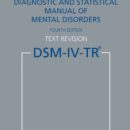Test Anxiety Treatment & Diagnostic Considerations
When considering treatment for test-taking anxiety, make sure that you have a comprehensive diagnostic assessment to rule out other possible causes of your symptoms. Not all cases of test anxiety are alike, and sometimes symptoms of test anxiety actually reflect a separate, underlying condition. If you’re located in South Florida (Palm Beach Gardens, Jupiter, West Palm Beach, Fort Lauderdale, Boca Raton, Boynton Beach, & Miami), I would be happy to meet with you to conduct an assessment of your symptoms and provide treatment (if appropriate). Regardless of where you live, here is a short list of factors to consider when getting help for your symptoms: Test Anxiety Diagnosis & Treatment Strategies 1. Don’t assume that just because you have test anxiety that the problem is only test anxiety. Test performance issues may also have an independent panic component. If...
Read More“Pure-O” OCD: Common Obsessions & Mental Rituals
As a follow-up to my previous post on Pure-O OCD, I thought it might be helpful to identify some obsessions that are commonly reported by individuals with Pure Obsessional OCD. These same obsessions may also be experienced by individuals with non-Pure-O forms of the disorder. Keep in mind that some of these symptoms are quite common (when experienced in a limited form) and may or may not represent an underlying psychological condition. If you experience symptoms like these, consult with your doctor for clarification. I am also available to conduct assessments and provide treatment if you’re located in South Florida (Palm Beach Gardens, Jupiter, West Palm Beach, Fort Lauderdale, Boca Raton, Boynton Beach, & Miami). Remember that most people who have Pure-O OCD actually perform compulsions. These compulsions just tend to be mental rather than behavioral in nature. Mental rituals...
Read MoreTo tweet or not to tweet (aka, keeping private things private in the Facebook/Twitter era)
Social media tools like Facebook and Twitter are poised to revolutionize healthcare. Social media sites can be useful for quickly disseminating health-related information and giving users a place to connect around shared interests. In some cases, online support communities have supplanted the traditional support group model. In other cases, social media tools are actually being adapted for treatment purposes (e.g., anxiety treatment via social media tools). As helpful as these sites might be, however, they pose potential privacy risks for users. Users respond to these risks in very different ways. There is a category of folks who openly blog/tweet/post status updates related to their anxiety and other mental health concerns, and there are those who would much rather keep this information private. Nowhere is this more apparent than on Twitter, where you can get a virtual minute-to-minute (or, in...
Read MoreOCD and DSM-V: Taking the “anxiety” out of OCD
Psychiatrists and psychologists continue to debate the fundamental nature of OCD, trying to decide whether or not OCD should continue to be classified as an “anxiety disorder.” In some ways, OCD overlaps with other anxiety-related conditions, such as panic disorder, phobias, social anxiety disorder, generalized anxiety disorder, and post-traumatic stress disorder (PTSD). In other ways, OCD is unique unto itself. Although the current version of the Diagnostic and Statistical Manual (the book that psychologists and psychiatrists use when making diagnoses) classifies OCD as an anxiety disorder, the next revision is likely to give OCD its own category of related conditions (see here). Regardless of your position on the conceptual issues involved in this change, there are many pragmatic benefits that arise from treating OCD-related conditions as distinct from the anxiety disorders. For example, it is likely that this change will ultimately...
Read More






